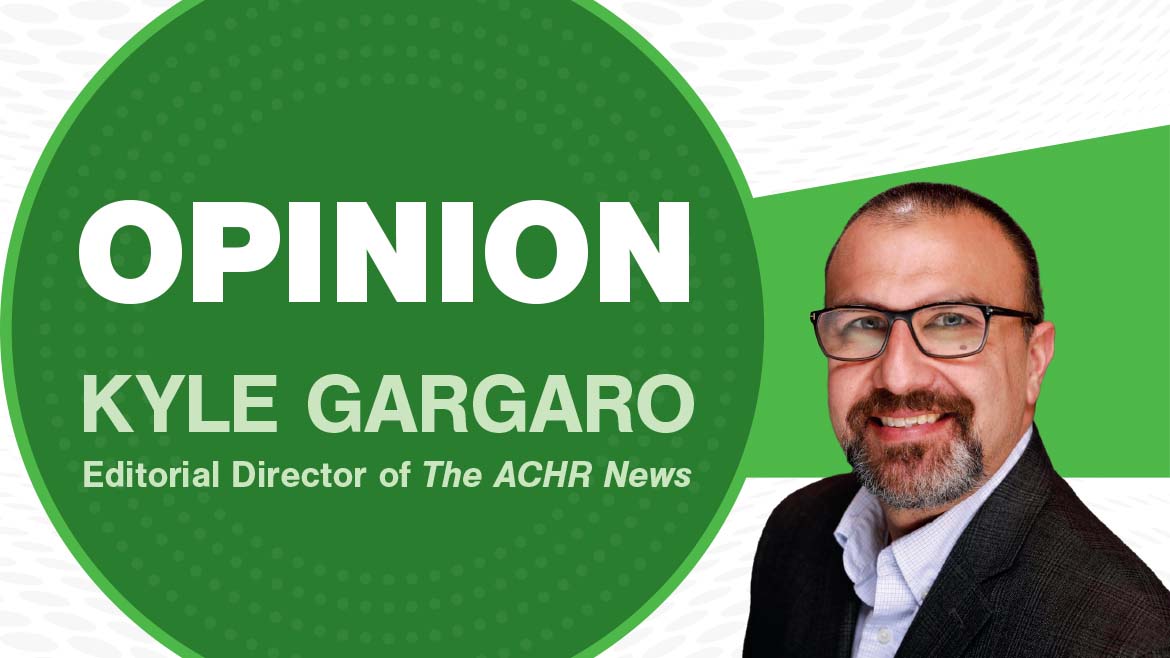In case you have been living under a rock, I wanted to let you know that there is an election coming up. Of course, the presidential election is at the top of the ticket, but a lot of other positions are on the ballot around the country.
This is an important time for small business owners like HVAC contractors. The people elected in November will see us through this COVID-19 pandemic while hopefully getting the economy back on its feet.
The HVAC industry is actually in good shape. The industry is in much better shape than I think we were all imagining when the economy was being shut down this last spring. The Paycheck Protection Program (PPP) funding helped a lot of HVAC contractors weather the storm. In addition, having ACCA fight hard to get HVAC on the essential business list certainly helped. That was followed by an extremely hot summer that has had the phones of residential contractors ringing off the hook.
Of course, there was a downside. Sometimes the government’s efforts create unintended consequences, and that is what some in the industry are seeing from the PPP.
“As great as the PPP funding has been, the unemployment has just been kicking their butt,” assessed Barton James, ACCA president and CEO, when asked about how things sit at present.
On the good side, he sees very strong demand for HVAC contractors, especially on the residential side, but also a catch: that federal enhanced supplement is disincentivizing workers on top of the industry’s long-running tech staffing challenges.
“You’ve got this pent-up workforce issue, but everyone you talk to has more business than they know what to do with. And they don’t have enough employees,” he said. “If they can get people off the couch, they’ve brought back all those people and are hiring more.”
James shared an anecdotal scenario of one contractor’s adjusted strategy, which he suspects others might follow.
“With the money out there right now for unemployment, they’re cutting people’s hours so they fall under 31 hours, so they still get unemployment and end up making more money,” he explained. “I hate to hear our system is broken to the point where people need to do that, but I appreciate the creativity in finding a way to get their employee off the couch while meeting their needs, too. So if everyone gets a win from that, then great.”
There have been negotiations on what the next legislation should look like to help the economy in this COVID world. Of course, industry folks have thoughts on what should be included. MCAA is looking for pension reform. That remains a key for MCAA, despite some objection that it wasn’t a sufficiently COVID-related issue.
“We couldn’t disagree more with that,” said John McNerney, general counsel and director of government and labor relations at MCAA. “Whatever the economic consequences directly for our members, in the medium term, [the pandemic] will impact these plans.”
Another top priority for McNerney’s team is COVID relief with regard to federal contracts. MCAA is advocating for a COVID-related equity recovery fund.
“For federal fixed-price contracts that were bid and awarded pre-COVID but are now being performed under the CDC and OSHA work protocols, there’s tremendous unforeseen workforce conditions,” he said.
MCAA makes the case that in addition to more familiar force majeure arguments for extended time as needed, the federal government should contribute to cover some of those COVID-era costs.
“How you plan the job before and after COVID are two very different things, and the latter is much more expensive,” McNerney said,
ACCA puts liability protection from individuals who might contract COVID-19 at the top of its list. The scope of such protection has been a point of contention in Washington.
“Our goal,” said James, “is if you’re doing what you think is the right thing, and if you’re tracking and following what’s out there and doing your best you can, you shouldn’t be held liable.”
ACCA’s other concern is whatever Congress can do to make PPP loan forgiveness as easy as possible. The organization pointed to a current proposal in Congress to forgive all loans under $150,000 outright, which would resolve many PPP loans to HVAC companies.
James envisions a simple form, similar to a one-page worksheet that a contractor might fill out with their tax returns, where a recipient can submit the most pertinent basic details to qualify for forgiveness with a minimum of hassle.
These are all issues on the radar of HVAC contractors. They would be well served to research where the candidates stand on these issues before they cast their vote.

